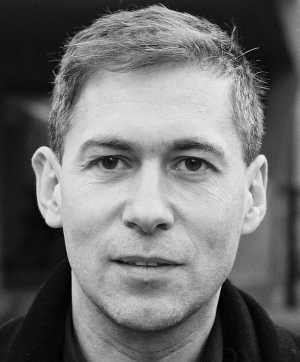Related Research Articles

Max Karl Ernst Ludwig Planck was a German theoretical physicist whose discovery of energy quanta won him the Nobel Prize in Physics in 1918.

The Max Planck Society for the Advancement of Science is a formally independent non-governmental and non-profit association of German research institutes. Founded in 1911 as the Kaiser Wilhelm Society, it was renamed to the Max Planck Society in 1948 in honor of its former president, theoretical physicist Max Planck. The society is funded by the federal and state governments of Germany.

The Gottfried Wilhelm Leibniz Prize, or Leibniz Prize, is awarded by the German Research Foundation to "exceptional scientists and academics for their outstanding achievements in the field of research". Since 1986, up to ten prizes have been awarded annually to individuals or research groups working at a research institution in Germany or at a German research institution abroad. It is considered the most important research award in Germany.
GRUR International - Journal of European and International IP Law is a monthly journal co-published in English by Verlag C.H. Beck and Oxford University Press. Founded in 1952 and owned by the German Association for the Protection of Intellectual Property (GRUR), since 1967 the Max Planck Institute for Innovation and Competition has assumed the scientific direction of the journal. Originally published in the German language, GRUR International made the transition to English in 2020.

The Max Planck Institute for Innovation and Competition is a Munich, Germany, based research institute, which is part of the Max Planck Society for the Advancement of Science, which manages 84 institutes and research institutions. The institute was formerly known as the Max Planck Institute for Intellectual Property and Competition Law and the name was changed to Max Planck Institute for Innovation and Competition in view of the broader focus of the institute and its interdisciplinary character. The major research areas of the institute are intellectual property, innovation and competition. Apart from providing research support for scholars from across the world, the institute also publishes the International Review of Intellectual Property and Competition Law (IIC).
The European Intellectual Property Institutes Network (EIPIN) is a cooperation network of intellectual property (IP) institutions, organizing conferences. It was founded in 1999. Its aim is "to facilitate and increase cooperation among IP institutions and students in Europe".
Sir Nicholas Richard Pumfrey styled The Rt Hon. Lord Justice Pumfrey, was a British barrister. He served as a High Court judge for 10 years, and was promoted to the Court of Appeal little more than a month before his sudden death.
Joseph Straus is professor of intellectual property law, former director of the Max Planck Institute for Intellectual Property, Competition and Tax Law, Munich, Germany, and Chairman of the Managing Board of the Munich Intellectual Property Law Center (MIPLC). According to the Intellectual Asset Management magazine, he is "one of the world's most influential patent scholars." He is member and dean of the Class "Social Sciences, Law and Economics" of the European Academy of Sciences and Arts.
The Max Planck Institute of Psychiatry is a scientific institute based in the city of Munich in Germany specializing in psychiatry. Currently directed by Elisabeth Binder and Alon Chen, it is one of the 81 institutes in the Max Planck Society.
Intellectual property organizations are organizations that are focused on copyrights, trademarks, patents, or other intellectual property law concepts. This includes international intergovernmental organizations that foster governmental cooperation in the area of copyrights, trademarks and patents, as well as non-governmental, non-profit organizations, lobbying organizations, think tanks, notable committees, and professional associations.
Cornelia Rudloff-Schäffer is a former president of the Deutsches Patent- und Markenamt (DPMA), a post she held from 1 January 2009 until her retirement in January 2023. She studied law, politics and media studies and was, after the second legal civil service examination, employed as academic employee at the Max Planck Institute for Foreign and International Patent, Copyright and Competition Law and at the Institut for the Protection of Industrial Property at the Ludwig Maximilian University of Munich. She retired at the end of January 2023 and was succeeded by Eva Schewior. Rudloff-Schäffer was the first woman to head the German Patent and Trade Mark Office "in the 145-year history of the office".
John R. "Jay" Thomas is a professor of law at Georgetown University Law Center.

Kai A. Konrad is a German economist with his main research interest in public economics.

Robert Klaus Freiherr von Weizsäcker is a German economist, Chess Grandmaster, and Honorary President of the German Chess Federation. He has held the Chair of Economics, Public Finance and Industrial Organization at Technical University of Munich. He is the eldest son of the late former German President Richard von Weizsäcker (1920–2015).

Paul Goldstein is a law professor at Stanford Law School.
The Max Planck Institute for Tax Law and Public Finance is an interdisciplinary research center in Munich. The Institute is part of the Max Planck Society, Germany’s foremost provider of basic research in science and humanities, funded largely from public resources.

Wolfgang Fikentscher was a German jurist, legal anthropologist, and academic.

Dan L. Burk was a Chancellor's Professor of Law at the University of California, Irvine School of Law and is a founding member of the law faculty. His areas of expertise included intellectual property, gene patenting, digital copyright, electronic commerce and computer trespass.
Andrea Wechsler is a German professor and politician of the Christian Democratic Union. She was elected member of the European Parliament in 2024.
References
- ↑ Max Planck Society, Max Planck Institute for Intellectual Property and Competition Law. Profile. Detailed Description of the Institute. Consulted on March 21, 2008.
- 1 2 MIPLC web site, About MIPLC Archived 2006-02-08 at the Wayback Machine . Consulted on March 21, 2008.
- ↑ Munich Intellectual Property Law Center web page, George Washington University Law School.